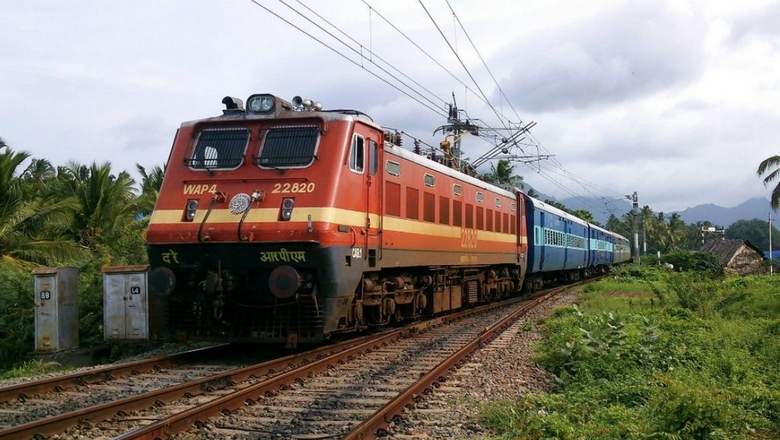India seeks NRI funds from UAE to fuel railway expansion
04:05PM Tue 7 Mar, 2017

Dubai , March 7,2017 (KT):Indian railways has been in discussion with the World Bank and pension funds to meet the huge investment needs estimated at $140 billion over five years.
Indian Railways, which is on an ultra fast track of modernisation and expansion requiring tens of billions of dollars, is mulling the possibility of tapping the huge financial potential of the non-resident Indian community, especially in the Gulf, to raise part of the funding.
Indian Railways Minister Suresh Prabhu, who is on a UAE visit, said his ministry is examining various measures to bring overseas investments into Indian railways.
As the world's second largest rail network operated under a single management, Indian railways has 115,000 km of track length and runs 12,617 trains to carry over 23 million passengers daily.
"We are examining how best we can tap into the huge potential of the NRI community to raise funds through certain investment instruments," Prabhu said.
Asked if the instrument could be in the form of a railway infrastructure bond, the minister said the ministry is considering various options to attract investments from NRIs, whose annual remittance is around $70 billion.
Minister Prabhu, who has met Khaldoon Khalifa Al Mubarak, Managing Director and Group Chief Executive Officer of Mubadala, Abu Dhabi's sovereign wealth fund, said Indian railways has been in discussion with the World Bank and pension funds to meet the huge investment needs estimated at $140 billion over five years.
The chartered accountant and banker turned minister, said discussions have been initiated with the World Bank for setting up a Railway Infrastructure Development Fund of around $30 billion.
He believes Indian railway requires a private-public partnership policy framework along with detailed and clear roadmap for implementation of projects on PPP mode.
Speaking to Khaleej Times, Prabhu, who has been on a mission to reinvent the 161 year old railways, said he hoped that by 2030, railway services would be benchmarked globally when the safety systems and record of the Indian railways must be the best in the world.
Addressing a reception meeting on Monday held by Indian Chartered Accountants Institute Dubai Chapter, the minister said China is investing every year what India plans to invest in five years. "Till 2014, when our government under Prime Minister Narendra Modi came to power, China would invest in six months what we did in five years. We will now increase our investment to $142 billion over the next five years, but that will still be nothing compared to China's investment.
Present at the reception were Indian Ambassador Navdeep Singh Suri, and Indian Consul General Anurag Bhushan.
Among the ambitious roadmap of a technology-driven expansion and modernisation programme are the re-development of about 400 railway stations, ultra high-seed trains, enhancement of safety features, mechanisation of track maintenance works, development of multi-modal logistics park, and modernisation and renovation of railway workshops.
Indian railways is working with six global companies for the development of ultra high-speed trains in India running at a speed between 350 and 600 kmph.
One of the major aims of railways is energy and cost savings. Last year, railways saved Rs35 billion from scrap and aim to make an energy saving of Rs410 billion in the next 10 years.
New services being launched by the railways include a roll-on roll-off service from Gurugram to carry loaded trucks on the flat wagons to de-congest roads in the National Capital Region; double decker trains to increase freight capacity; Aadhaar-based new ticketing app; new imported coaches for comfortable journey apart from rolling out a total of around 2,300 new coaches, partnership with India Post in parcel business' new train services; new linen wash plant and an integrated travel app.
issacjohn@khaleejtimes.com
author
Issac John
Associate Business Editor of Khaleej Times, is a well-connected Indian journalist and an economic and financial commentator. He has been in the UAE's mainstream journalism for 35 years, including 23 years with Khaleej Times. A post-graduate in English and graduate in economics, he has won over two dozen awards. Acclaimed for his authentic and insightful analysis of global and regional businesses and economic trends, he is respected for his astute understanding of the local business scene.











